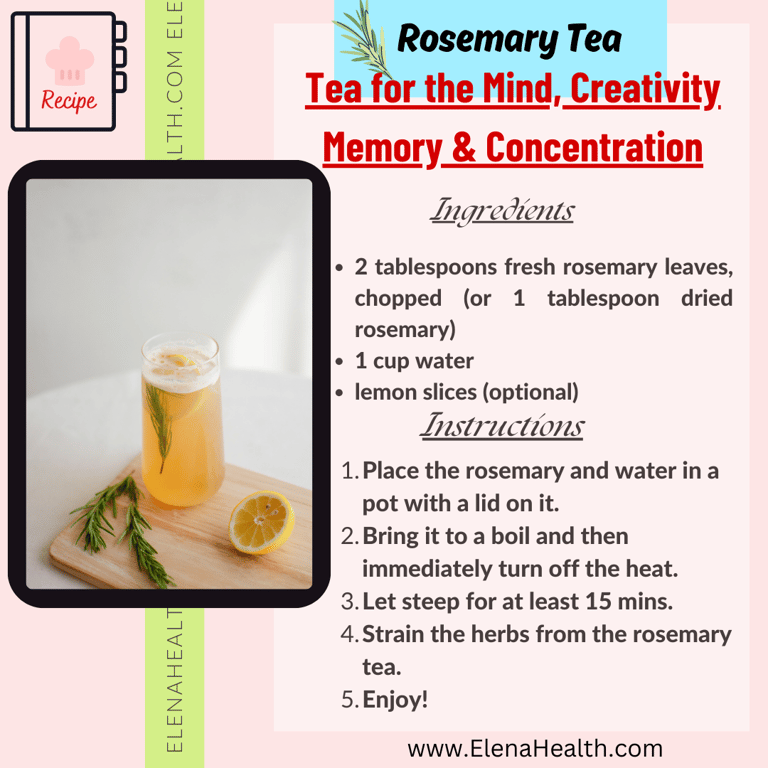Your brain’s best friend Rosemary
ElenaHealth.com
3/22/20241 min read


In ancient times, rosemary tea was used to treat various health problems from hair loss to digestive problems. And there is now compelling evidence that consuming and inhaling rosemary's compounds reduce anxiety, improve mood, concentration and memory. А key component of the herb, called 1,8-cineole (sin-ee-OLE), is detected in the bloodstream as soon as a person breathes in rosemary's aroma.
It is best to use fresh leaves, as rosemary's highest therapeutic potential is greatest in its natural oil (which is found in higher concentrations in fresh leaves).
You can make tea using rosemary leaves straight from your garden.
Rosemary has antimicrobial, anti-inflammatory, antioxidant, anti-apoptotic, anti-tumorigenic, antinociceptive, and neuroprotective properties.
Helps lower blood sugar levels as it has an insulin-like effect and increases glucose uptake by muscle cells.
May speed up weight loss
Improves mood, concentration and memory, reducing anxiety when consuming and inhaling rosemary compounds
Supports brain health both after injury and against aging and neurodegenerative diseases.
Protects vision and eye health by slowing the progression and severity of diseases such as cataracts and age-related macular degeneration.
Rosemary extract reduces the risk of heart failure after a heart attack
Supports digestion by promoting a healthy balance of gut bacteria and reducing inflammation.
May promote hair growth






